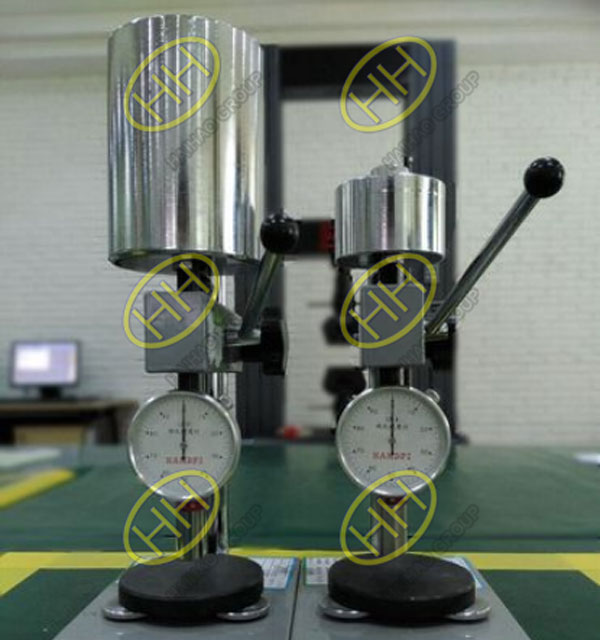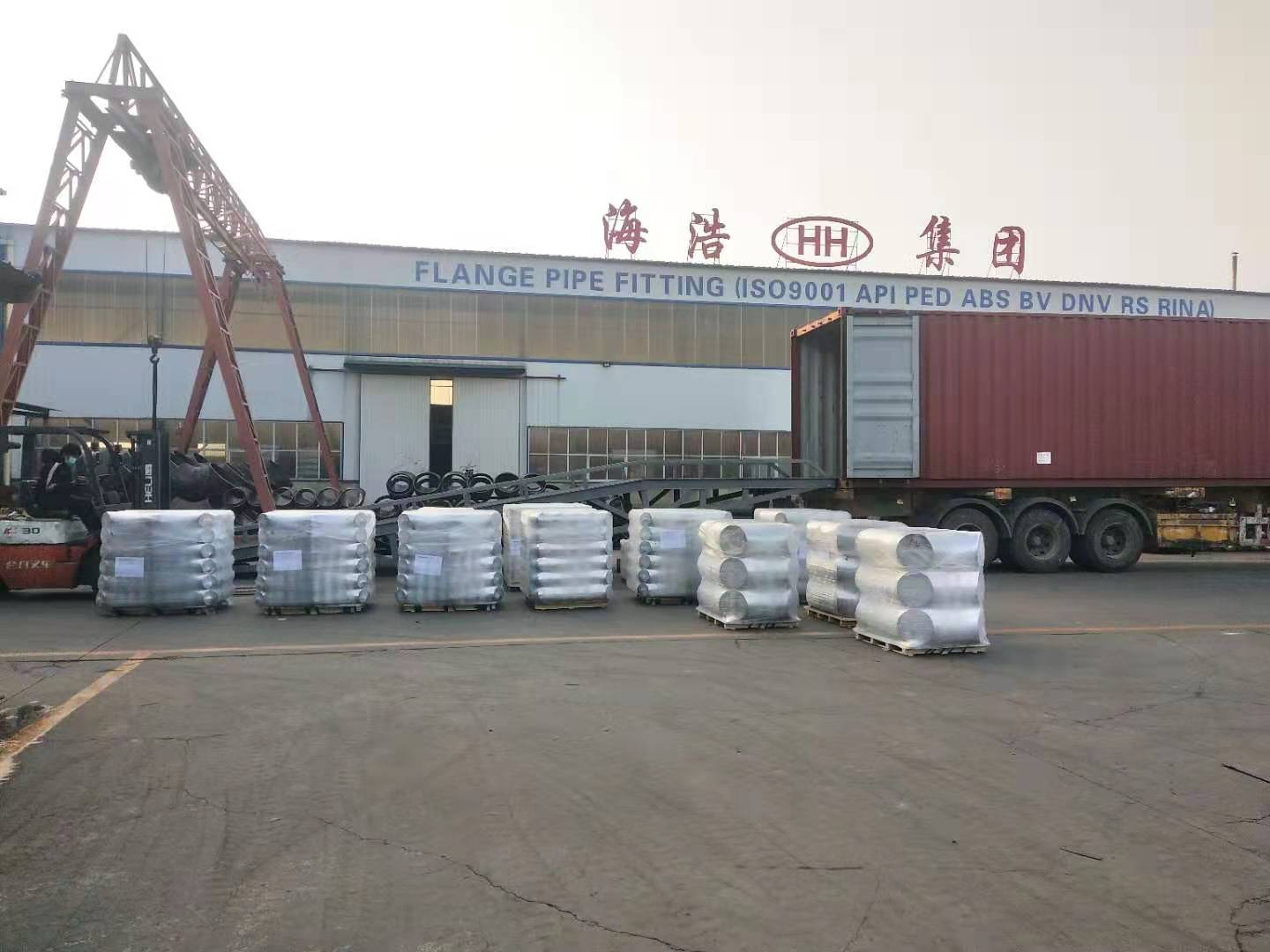Introducing commonly used hardness testing equipment
Recently, Haihao Group conducted hardness tests on pipe fitting product test blocks ordered by a group of Russian customers. We would like to take this opportunity to introduce several commonly used equipment for hardness testing.Hardness testing equipment, known as hardness testers, are essential tools for assessing the hardness of materials. These testers vary based on the specific hardness testing method being employed.
Rockwell Hardness Tester: Rockwell hardness testers come in various types including manual, electric, digital, surface, optical, and high-rise models. The manual Rockwell hardness tester offers simplicity in operation and swift measurements, allowing direct reading of hardness values from the indicator dial. With its low testing force and minimal indentation, it has negligible impact on most workpieces, making it suitable for testing finished or semi-finished products. Its initial testing force reduces the influence of minor surface irregularities on hardness values, making it ideal for factory use and batch testing. This method requires minimal expertise, making it easy for non-professionals to use.

Hardness Testing for Pipeline Materials
Brinell Hardness Tester: Brinell hardness testing boasts good representation of hardness. Using a 10mm diameter ball indenter and a test force of 294.2 kN (3000 kgf), it produces a relatively large indentation area, reflecting the average influence of various metal constituents over a wide range. This method is particularly suitable for determining the hardness of materials like grey cast iron, bearing alloys, and metals with coarse grains. It offers stable test data, good reproducibility, and accuracy higher than Rockwell hardness but lower than Vickers hardness. Additionally, there exists a strong correlation between Brinell hardness values and tensile strength values.
Vickers Hardness Tester: Vickers hardness testers are categorized into regular, small-load, and micro Vickers hardness testers. The regular Vickers hardness tester typically applies loads ranging from 98.1 to 490.4 N (10 to 50 kgf), while the small-load version applies a maximum load of 49.04 N (5 kgf), and the micro Vickers tester applies a maximum load of 9.81 N (1 kgf). With a wide measurement range, Vickers hardness testing can accommodate nearly all metals used in industry, from very soft to very hard materials. It is primarily used for material research and scientific experiments, with the small-load version being suitable for testing small precision parts, surface hardening layer hardness, coating surface hardness, thin sheet materials, and dental materials. The micro Vickers hardness test is employed in metallography and metallurgy studies, as well as for testing extremely small or thin components, with sample thicknesses as low as 3 μm. One significant advantage of Vickers hardness testing is its independence from the applied load, allowing for consistent hardness values across a wide range of materials.

Haihao Group
Shore Hardness Tester: Shore hardness testers, also known as Shore durometers, are used to measure the hardness of metals. They are particularly useful in industries such as metallurgy and heavy machinery for testing large components like castings, forgings, crankshafts, rollers, large gears, and machine tool guides. In the rubber and plastics industry, they are commonly referred to as Shore hardness testers. While slightly less accurate compared to other hardness testers, Shore hardness testers are portable and convenient for on-site testing. They are simple to operate and offer high testing efficiency.
Leeb Hardness Tester: The Leeb hardness tester is a modern hardness testing instrument characterized by high testing accuracy, compact size, easy operation, portability, and a wide measurement range. It automatically converts hardness values into Brinell, Rockwell, Vickers, and Shore hardness values, and prints records. It can be equipped with accessories suitable for various testing environments and conditions. Portable Leeb hardness testers find widespread application in analyzing failures of installed machinery or permanent assemblies, bearings and other parts, pressure vessels, steam turbine generators and their equipment, heavy-duty components, testing of small items in narrow test spaces, requirement for formal original record of test results, material differentiation in metal material warehouses, and rapid inspection of multiple locations within a wide range of large workpieces.
Haihao Group has been deeply involved in the field of pipeline system supporting products for many years. We attach great importance to product quality control, so our products will undergo strict quality inspection procedures. From material selection to production to delivery, we can provide customers with various quality inspections and issue official reports. If you need it, please feel free to contact us.

